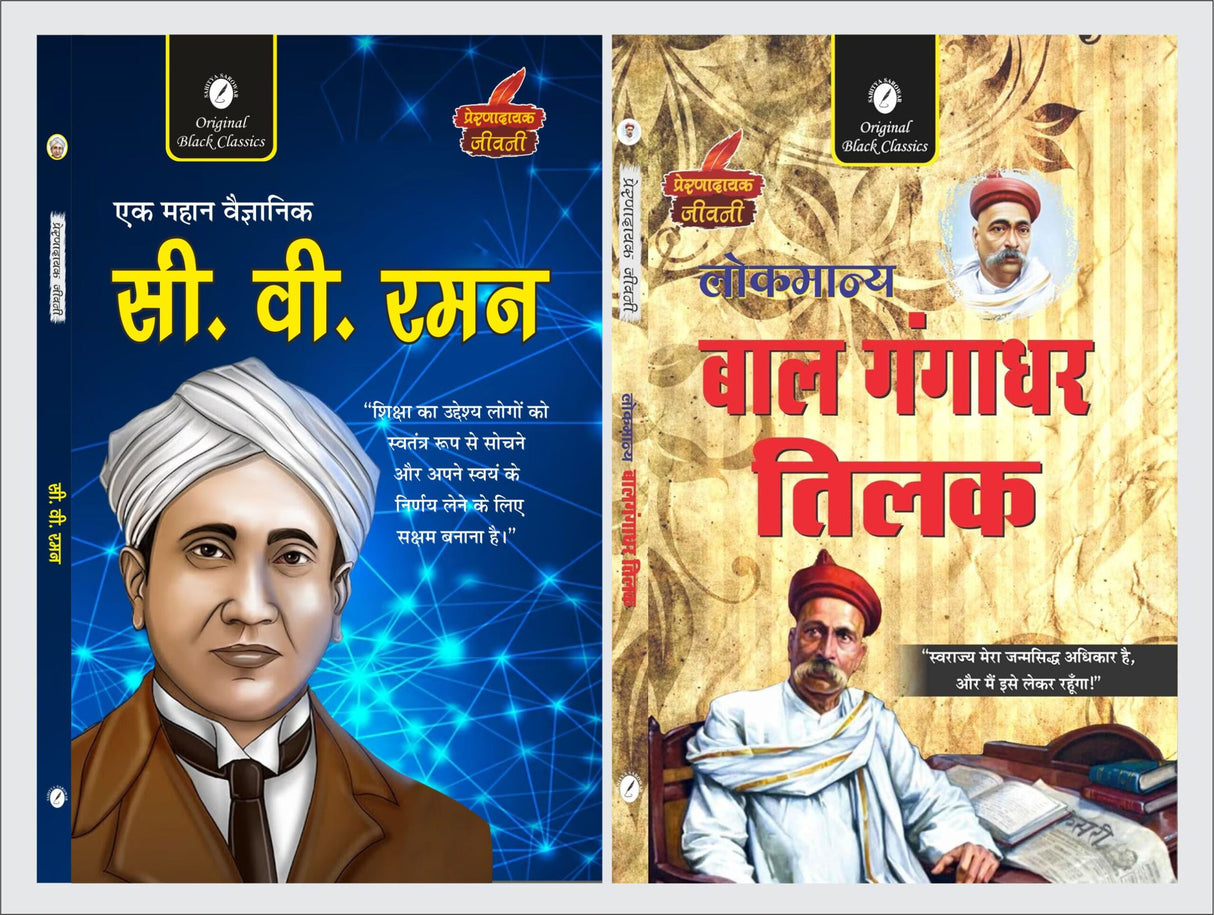C.V. Raman & Lokmanya Bal Gangadhar Tilak (Prernadayak Jeevani)
C.V. Raman & Lokmanya Bal Gangadhar Tilak (Prernadayak Jeevani) is backordered and will ship as soon as it is back in stock.
Couldn't load pickup availability
Genuine Products Guarantee
Genuine Products Guarantee
We guarantee 100% genuine products, and if proven otherwise, we will compensate you with 10 times the product's cost.
Delivery and Shipping
Delivery and Shipping
Products are generally ready for dispatch within 1 day and typically reach you in 3 to 5 days.
-
Publisher: Original Black Classic
-
Language: English
-
Binding: Paperback
-
Pages: 208
-
Item Weight: 260 g
-
Dimensions: 21.5 x 14 x 2 cm
About the Book
This book delves into the extraordinary lives and legacies of Chandrasekhara Venkata Raman and Bal Gangadhar Tilak, two of India’s most influential figures who made lasting contributions in science and politics, respectively.
Chandrasekhara Venkata Raman (7 November 1888 – 21 November 1970) was born in Tiruchirappalli, Tamil Nadu, into an academic family. With his father’s influence in mathematics and physics, Raman’s brilliance in science became evident early on. He won a gold medal in physics at Presidency College, Madras, and later achieved international fame for his groundbreaking work in the field of light scattering, which earned him the Nobel Prize in Physics in 1930. His discovery, known as the Raman Effect, revolutionized the understanding of light and earned India its first Nobel Prize in science.
Bal Gangadhar Tilak (23 July 1856 – 1 August 1920), popularly known as Lokmanya, was a key leader in India’s struggle for independence. As part of the Lal Bal Pal triumvirate, Tilak was a fierce advocate for Indian self-rule and played a crucial role in rallying the masses against British colonialism. Famously called the “father of Indian unrest” by the British, he was also revered by the Indian people for his leadership and determination. Tilak’s legacy lives on through his tireless efforts to ignite the spirit of nationalism and self-determination in India.
This book offers a comprehensive exploration of their achievements, ideologies, and the lasting impact they had on Indian society. Ideal for readers interested in the intersection of science, politics, and India’s path to independence.





